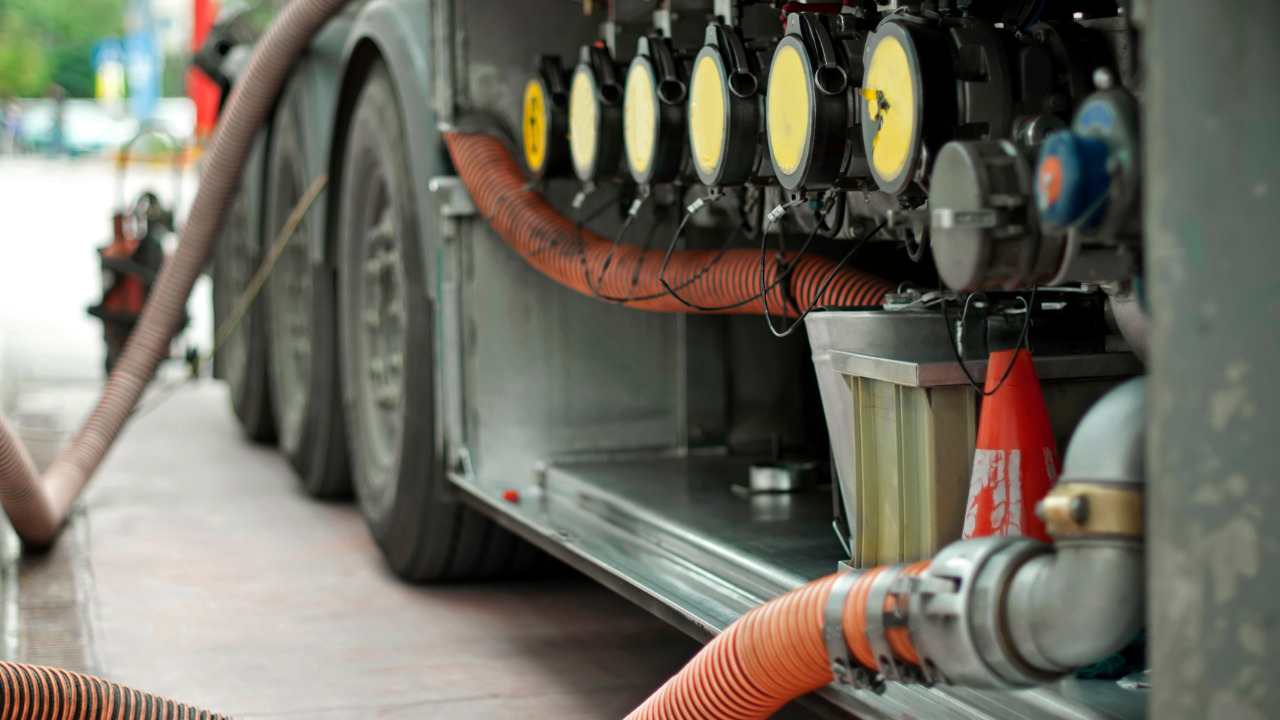Have you ever wondered why diesel fuel is the preferred fuel for trucks and other commercial vehicles? As a transportation or logistics business, it’s important to understand why diesel has been the go-to choice.
This article will explain how diesel engines are well-equipped to handle heavy workloads and provide powerful performance, as well as explore some of their environmental benefits compared to traditional gasoline engines.
We’ll also discuss today’s alternative fuels available for trucks that emit little to no emissions, making them an even more viable option in the context of clean energy solutions.
By understanding what makes diesel the best choice for commercial vehicles now and in the future, you can make informed decisions on your fleet’s needs while keeping efficiency and sustainability as top priorities.
Table of Contents
Cost-Effectiveness of Diesel
Cost-effectiveness is one of the main advantages that drives truck owners and operators to diesel fuel. Despite being more expensive than regular gasoline, its lower cost per gallon makes commercial vehicles much cheaper to run than they would be with gasoline power alone.
Diesel engines don’t require as much fuel to produce the same amount of power, meaning that you get a range of extra miles for less money; this makes them especially convenient for long hauls and foreign trips.
Additionally, their superior resilience has been proven to extend their lifespan when compared to those running on petrol, meaning more kilometers for each liter of diesel. Ultimately, this helps reduce the use of resources as a whole and gives businesses and individuals an economical option when it comes to powering their vehicles.
Power Output
When it comes to powerful outputs, diesel engines have a clear advantage over gasoline engines. Diesel is dense than petrol fuel and generates higher compression for better combustion, meaning diesel cars get more torque out of each gallon and are able to transport heavier loads faster, making it the go-to choice for freight carriers and any business in need of a diesel fuel supplier.
Moreover, the smaller RPM range of diesel engines results in longer lifespans with less wear and tear on the engine over time, making them ideal for use in heavy-duty applications such as trucking and other commercial vehicles that need to transport large volumes or items over long distances.
Clearly, then, while both types of powertrains come with distinct advantages, when it comes to raw power output, nothing beats a diesel engine.
Durability
Diesel engines have proven to be highly efficient and all-around tough, able to stand up to more regular use than gasoline equivalents.
This is due in part to their sturdy design with larger cylinders that supply lots of air for a slow-burning process during combustion. By contributing to a slower burning process and generating less heat, diesel engines experience much less wear and tear on their parts which extends the life of the engine over time.
In comparison, gasoline engines combust more quickly, which sends more heat and stress through engine components faster than diesel, leading to decreased performance as well as shorter sheltered lifespans when used for high-stress activities such as hauling heavy loads or frequently braking with clutch systems.
This gives diesel engines an edge over their counterpart in terms of durability while they remain suitable for a great variety of operation scenarios.
Reliability
With a hefty reliance on the satisfaction of their customers, manufacturers must ensure that they are continuously producing dependable vehicles; this is where diesel-powered models hold a clear advantage.
As opposed to their gasoline-powered counterparts, diesel engines employ an injection system that utilizes compressed air rather than having to rely on spark plugs as traditional internal combustion systems do.
This injector process allows for more consistent power delivery regardless of the weather and temperature conditions, ensuring its operators are not left in a lurch if the unexpected happens.
From flipping burgers at truck stops during long trips to working through muddy construction zones each and every day, diesel motors can prove to be an invaluable asset when it comes to bringing reliable performance – no matter what surprises mother nature has in store!
Reduced Pollution Levels
Diesel fuel has been the preferred fuel for commercial vehicles for decades and continues to be a major energy source due to its superior properties. As diesel is denser than gasoline, it provides greater thermal efficiency and therefore enhanced engine performance.
Diesel engines can produce more power but with lower levels of emissions because diesel fuel requires a higher compression ratio and higher temperatures to ignite, effectively reducing the oxidation of unburned hydrocarbons and causing air pollution.
Diesel combustion also produces less nitrogen oxide (NOx) compared to gasoline engines as it burns at a lower temperature. Moreover, advanced diesel fuel injection systems modernize the combustion process making engines more efficient while producing fewer emissions.
Further, still, up-to-date filtration systems fitted in vehicles utilizing the diesel engine remove almost all hazardous particles from the exhaust gas before they are released into the atmosphere leading to healthier air quality.
For these reasons, diesel is unquestionably the best choice for trucks and other commercial vehicles seeking efficient alternative energy sources that reduce pollution levels.
Conclusion
Diesel fuel is a great choice for trucks and other commercial vehicles for a variety of reasons. It’s more efficient than gasoline, which means that it can go further on a tank of fuel.
It also produces fewer emissions than gasoline, making it better for the environment. And finally, diesel engines tend to last longer than gasoline engines, so you’ll get more mileage out of your truck if you choose diesel. If you’re looking for the best possible fuel for your commercial vehicle, look no further than diesel.





